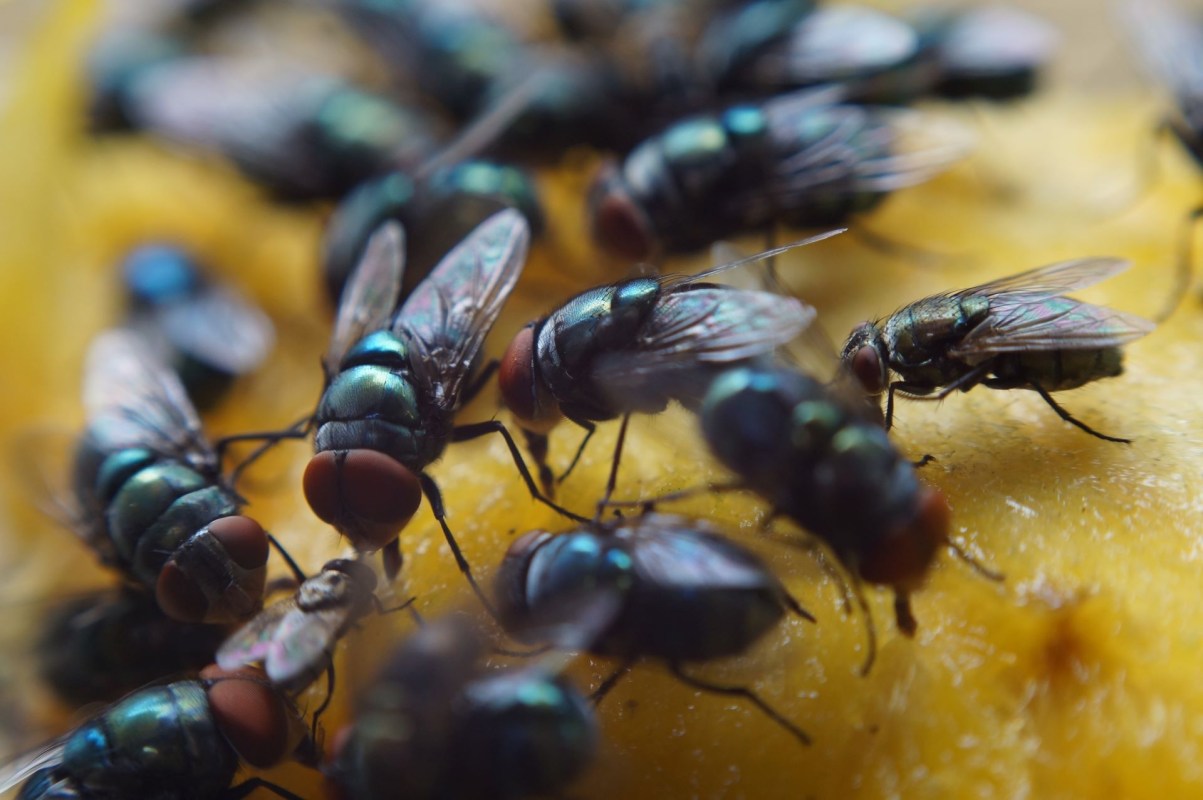Air pollution is having an unbelievable effect on flies, altering how they attract one another and mate.
What's happening?
Insects typically find their mates by heavily relying on pheromones –– chemicals that allow males and females to locate each other and mate.
These pheromones are distinctive to males and females of a species, and in the case of flies, they are being disrupted and degraded by the pervasive increase of ozone in the air, which is a result of air pollution.
Scientists at the Max Planck Institute for Chemical Ecology in Germany discovered these effects by developing an experiment that mimicked ozone levels similar to what is measured during the summertime in cities.
Typically, male flies' pheromones attract females while simultaneously repelling other males. But increased ozone levels caused a decrease in pheromones, which caused females to be less attracted to males and led to courtship between male flies.
"We could explain that males started courting each other after a short ozone exposure because they obviously could not distinguish ozonated males from females," said researchers Nanji Jiang and Markus Knaden. "However, we had not thought about this before. Therefore, we were quite puzzled by the behavior of the ozone-exposed males, which lined up in long courtship chains."
Why is this important?
The effects of this news are substantial. It is not just flies that are affected –– ozone is thought to affect the patterns of many insects.
Pheromone communication is not only used for mating. It also helps insects identify members of the same species and their communities, such as bee hives, wasp nests, and ant colonies. Nothing sounds more chaotic than a bunch of ants, bees, and wasps confused and out of place.
The chaos doesn't stop there –– insects such as bees and butterflies are vital pollinators. A decrease in pheromones equals a decline in reproduction and population. The effects could be detrimental, as 80% of our crops require insect pollinators.
What can I do to help prevent this?
According to Bill Hansson, head of the Evolutionary Neuroethology Department and co-founder of the Max Planck Center Next Generation Insect Chemical Ecology, "the only solution to this dilemma is to immediately reduce pollutants in the atmosphere."
Immediately reducing pollutants in the atmosphere will require efforts from large brands and corporations that release a significant amount of pollutants. Still, some steps can be taken on an individual level as well. Individuals can drive their cars less, use less energy, and opt for more sustainable shopping options, to name a few.
Join our free newsletter for cool news and cool tips that make it easy to help yourself while helping the planet.









